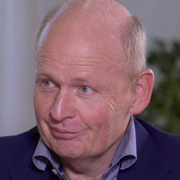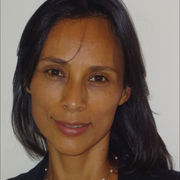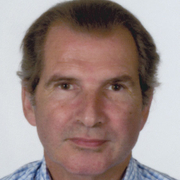- Level Foundation
- Duration 15 hours
- Course by University of Geneva
-
Offered by

About
At the global level, there are many countries marked by violence affecting health care. The 'Health care in danger' project aims to establish practical measures and recommendations that can be implemented on the ground by policy-makers, humanitarian organizations and health professionals. In view of the multiplicity of actors and latitudes concerned, it is essential to be able to make available the tools needed to make informed decisions, guide behaviour in high-risk areas and provide everyone the means to create and optimize the dialogue between humanitarian professionals and health on the one hand and relevant authorities or other armed actors. This course covers various topics such as ethics, rights and responsibilities of the staff of health and pre-hospital personnel, issues related to international law and humanitarian law, international human rights, caregivers and patient safety as well as the role of communities to address and reduce violence against health care.Modules
The importance of addressing violence against Health Care together
2
Videos
- General introduction
- The importance of addressing violence against Health Care together -Angela Gussing (Regional Director for the Americas, ICRC)
5
Readings
- Syllabus
- Course Summary
- General References
- Key terms - Glossary and Acronyms
- Acknowledgements
Introduction Module 1: Health care in times of armed conflict and other emergencies
1
Videos
- Introduction
1
Readings
- Key resource for module 1
The challenges working in conflicts and other emergencies. It is precisely when the needs are the greatest, that the services become the weakest - Esperanza Martinez, (Head of the health unit, ICRC)
5
Videos
- 1.1.1 Me, The health provider - Esperanza Martinez, (Head of the health unit, ICRC)
- 1.1.2 Human resource challenges - Esperanza Martinez, (Head of the health unit, ICRC)
- 1.1.3 The ethical issues - Robin Coupland, (former field surgeon, ICRC)
- 1.1.4 Health Care in Danger: Voices of the Community - Dr Otmar Kloiber, (Secretary General, WMA)
- 1.1.5 The perspective of the beneficiaries - Eric Bernes, (Coordinator, First Aid & Prehospital Emergency care programs, ICRC)
Data Collection. Data are indispensable, most of the time not significant and need to be nuanced by qualitative approaches.
1
Videos
- 1.2.1 Quantitative data and their bias - Robin Coupland, (former field surgeon, ICRC)
Mental health and psychosocial support
3
Videos
- 1.3.1 Introduction to help the helpers’ strategy - Carla Uriarte, (Mental Health and Psychosocial Support Advisor, Health Unit, ICRC)
- 1.3.2 Help the Helpers program in Mexico (Excerpt from MHPSS film Healing Hidden Wounds, 2015)
- 1.3.3 MHPSS delegate interview (encapsulating presentation with Excerpt from Health care in Gaza: Mental health support for frontline workers, 2015)
The vulnerable, the Invisibles
1
Discussions
- Discussion on module 1
1
Videos
- 1.4.1 Explanation of the vulnerable groups, their invisibility and early search for them - Stephane Du Mortier, (Head of the Primary Health Care Services, ICRC)
Module one evaluation
1
Peer Review
- Health-care personnel: ethical principles of health care in times of armed conflict and other emergencies
Summary
1
Videos
- Course summary module 1
Introduction
1
Videos
- Introduction Alexander Breitegger, (Legal Adviser, ICRC)
1
Readings
- Key resources for module 2
The sources and scope of the legal framework
2
Videos
- 2.1.2 The scope of application of relevant legal frameworks - Alexander Breitegger, (Legal Adviser, ICRC)
- 2.1.3 The sources of international humanitarian law and international human rights law - Alexander Breitegger, (Legal Adviser, ICRC)
Legal protection of patients, health-care personnel, facilities and medical transport
1
Discussions
- Discussion on module 2
6
Videos
- 2.2.1a Case Study Yemen 1 : Operational implementation of obligation to provide impartial health care - Benjamin Charlier, (Legal Adviser, Advisory Services for International Humanitarian Law, ICRC) and Alexander Breitegger, (Legal Adviser, ICRC)
- 2.2.1b Case Study Yemen 1 : Operational implementation of obligation to provide impartial health care - Benjamin Charlier, (Legal Adviser, Advisory Services for International Humanitarian Law, ICRC) and Alexander Breitegger, (Legal Adviser, ICRC)
- 2.2.2a Challenges under domestic law for guaranteeing impartial delivery of health care: example of Colombia. Skype interview German Parra Gallego, (Operational Legal Adviser, ICRC Bogota) and Alexander Breitegger, (Legal Adviser, ICRC)
- 2.2.2b Challenges under domestic law for guaranteeing impartial delivery of health care: example of Colombia. b) Skype interview Jorge Arturo Cubides Granados, (Interinstitutional coordinator of the programme by the Presidency of Colombia on human ri
- 2.2.3 Case Study Yemen 2: Legal aspects relevant to attacks against health-care facilities - Marisela Silva Chau, (Thematic Legal Adviser, ICRC and formerly Operational-Legal Adviser for ICRC Afghanistan, Colombia and Peru) and Alexander Breitegger,
- 2.2.4 Case study Yemen 3: Legal aspects relevant to obstructions of passage of medical transports - Marisela Silva Chau, (Thematic Legal Adviser, ICRC and formerly Operational-Legal Adviser for ICRC Afghanistan, Colombia and Peru) and Alexander Brei
Emblems and other ways to ensure identification of HC personnel, facilities and medical transports
2
Videos
- 2.3.1 The red cross, red crescent and red crystal emblems-authorized uses, misuses and associated obligations - Alexander Breitegger, (Legal Adviser, ICRC)
- 2.3.2 Other symbols and possibilities of identification - Alexander Breitegger, (Legal Adviser, ICRC)
Module 2 Evaluation: International Humanitarian Law and International Human Rights Law application
1
Assignment
- International Humanitarian Law and International Human Rights Law application (please read above case study text, before starting quiz!)
1
Readings
- A health-care facility embroiled in military operations (please read before attempting the quiz !)
Summary
1
Videos
- Course Summary module 2
Introduction to the issues faced by ambulance and prehospital services in risk situations
1
Videos
- Introduction Frederik Siem, (Senior Adviser for Health Care in Danger, Norwegian Red Cross)
1
Readings
- Key resources for module 3
Challenge of ensuring continuity of service, solutions
1
Discussions
- Discussion on module 3
2
Videos
- 3.1.1 Aggression against ambulance personnel due to expectations exceeding capacity
- 3.1.2 Challenges and solutions: example from Lebanon - Frederik Siem, (Senior Adviser for Health Care in Danger, Norwegian Red Cross) and Rodney Eid, (Assistant Director for Crisis Management, Lebanese Red Cross)
Challenge of misuse of ambulances, solutions
2
Videos
- 3.2.1 Consequences of ambulance misuse: example from Baghdad - Frederik Siem, (Senior Adviser for Health Care in Danger, Norwegian Red Cross) and Sally Al-Nakshabandi, (Humanitarian Leadership and Management School - HLMS, ICRC)
- 3.2.2 Misuse of ambulances internally in the organization - Frederik Siem, (Senior Adviser for Health Care in Danger, Norwegian Red Cross)
Challenge of attacks on ambulances and pre-hospital personnel
3
Videos
- 3.3.1 Solutions to operational dilemmas encountered in hot zones - Frederik Siem, (Senior Adviser for Health Care in Danger, Norwegian Red Cross)
- 3.3.2 Importance of situational awareness in risk situations - Frederik Siem, (Senior Adviser for Health Care in Danger, Norwegian Red Cross)
- 3.3.3 Reasons behind and consequences of ambulance obstruction: example of Colombia - Frederik Siem, (Senior Adviser for Health Care in Danger, Norwegian Red Cross) and Dr Francisco Moreno Carillo, (Director of General Health, Colombian Red Cross) an
How violence affects ambulance and prehospital services also in peaceful contexts
1
Videos
- 3.4.1 Adapting to violent situations in peaceful contexts: Example of Sweden - Jane Kautto, (President of the Swedish Ambulance Nurses Association)
Evaluation: Ambulance and prehospital services in risk situations
1
Assignment
- Module 3: Ambulance and prehospital services in risk situations
Summary
1
Videos
- Course summary: module 3
Introduction
1
Videos
- Introduction Dr Bruce Eshaya-Chauvin, (former Medical Adviser, Health Care in Danger project, ICRC)
1
Readings
- Key resources for module 4
Lesson 1 Patients, families, staff: how to ease that process
5
Videos
- 4.1.1 The well-being of health-care personnel - Dr Bruce Eshaya-Chauvin, (former Medical Adviser, Health Care in Danger Project, ICRC) and Amanda Baumgartner (Head Nurse, ICRC DRC)
- 4.1.2 Relations between health-care personnel and patients - Dr Bruce Eshaya-Chauvin (former Medical Adviser, Health Care in Danger Project, ICRC) and Joana De Barros (Head Nurse, ICRC DRC)
- 4.1.3 Who should be cared for first - Dr Bruce Eshaya-Chauvin (former Medical Adviser, Health Care in Danger Project, ICRC) and Felicity Machoka, (Hospital Project Manager, ICRC Pakistan).
- 4.1.4 Hospital infrastructure, risk analysis and how to prepare - Federico Sittaro, (Water & Habitat - Strategic Planner: Health and Urban Infrastructures, ICRC)
- 4.1.5 The multi-dimension approach to safeguarding medical care in armed conflict and other emergencies - François Delfosse, (Security Advisor for the Attacks on Hospitals Project at MSF)
Lesson 2 WHO and the safe hospital index
4
Videos
- 4.2.1 The importance of preparation of HC facilities for emergencies - Sona Bari, (Communications Manager at the WHO)
- 4.2.2 The safe hospital index: an assessment report and action plan for resilience and safety - Jonathan Abrahams, (Technical Officer, Health Policy in Disaster Risk Management, Country Health Emergency Preparedness and International Health Regulati
- 4.2.3 The safe hospital index: field implementation example in Nepal - Hyo Jeong Kim, (Technical officer for Humanitarian Policy & Guidance in WHO’s Health Emergencies Program)
- 4.2.4 The safe hospital index: benefits and how to implement the program in your own country - Dr Rudi Coninx, (Coordinator of Humanitarian Policy and Guidance in WHO’s Health Emergencies Program)
Lesson 3 Hospitals in peaceful contexts and the pertinence of recommendations elaborated for times of conflict
1
Discussions
- Discussion of module 4
1
Videos
- 4.3.1 Violence in the emergency room. , Sylviane Stotzer, (Nurse, Emergency Service, University Hospitals of Geneva HUG)
Quiz Module 4: Hospital managers: ensuring the preparedness and security of health-care facilities in armed conflict and other emergencies
1
Assignment
- Healthcare Facilities
Summary
1
Videos
- Course Summary Module 4
Introduction
1
Videos
- Introduction Jamie Williamson, (Head of Unit, Relations with Arms Carriers, ICRC)
1
Readings
- Key resources for module 5
Lesson 1 Military Operational Practice
1
Videos
- 5.1.1 Main concerns regarding the protection of healthcare personnel and facilities - Jamie Williamson, (Head of Unit, Relations with Arms Carriers, ICRC)
Lesson 2 Checkpoints
2
Videos
- 5.2.1 Practical measures/Ensuring safe passage of medical vehicles at checkpoints - David Maizlish, (Advisor, Military and Security Forces, ICRC)
- 5.2.2 Targeting of health-care facilities: Practical measures to be set up by armed forces and Non-State Armed Groups (NSAG) - David Maizlish (Advisor, Military and Security Forces, ICRC)
Lesson 3 Non-State Armed Groups (NSAGs) and Health Care Provision
1
Discussions
- Discussion of module 5
2
Videos
- 5.3.1 Non-State Armed Groups (NSAGs) and the Provision of Health Care, Part1 - Brian Mc Quinn, (Advisor on the Sociology of Non-State Armed Groups, ICRC) and Franziska Seethaler, (Associate on Relations with Non-State Armed Groups, ICRC)
- 5.3.2 Non-State Armed Groups (NSAGs) and the Provision of Health Care, Part2 - Brian Mc Quinn, (Advisor on the Sociology of Non-State Armed Groups, ICRC) and Franziska Seethaler, (Associate on Relations with Non-State Armed Groups, ICRC)
Lesson 4 Ethical challenges in Military Medicine
1
Videos
- 5.4.1 The ICMM and the issues of ethics in military medicine - Lt Col David Winkler, MD, PhD, (Chairman of the ICMM Center of Reference for Education on IHL and Ethics)
Evaluation module 5: Weapons Bearers: military operational practice to ensure safer access to and delivery of health care
1
Assignment
- Measures and recommendations to improve arms carriers' respect for health care (please read the text here above before attempting this quiz !)
1
Readings
- Key issues regarding arms carriers in the provision of health care in conflict zones (to be read before attempting the quiz !)
Summary
1
Videos
- Course Summary Module 5
Introduction
1
Videos
- Introduction Luigi Fratini, (Head of the Prevention Cell Unit, ICRC)
Lesson 1 National Societies
1
Videos
- 6.1.1 The National Society Auxiliary role - Sylvia Khamati (Head of Health and Social Services, Kenya Red Cross - KRCS) and Luigi Fratini, (Head of the Prevention Cell Unit, ICRC)
1
Readings
- Key resources for lesson 1: National Societies
Lesson 2 The community
2
Videos
- 6.2.1. Building Community resilience - Marta Pawlak, (Advisor on Community Based Protection & Sexual Violence, ICRC)
- 6.2.2 Encouraging Community to advocate on the respect and the protection of health care - Marta Pawlak, (Advisor on Community Based Protection & Sexual Violence, ICRC)
1
Readings
- Key resources for lesson 2: the Role of Communities
Lesson 3 The role of health associations
2
Videos
- 6.3.1 World Medical Association as promoter of respect of health care during crisis - Otmar Kloiber, (Secretary General, World Medical Association) and Luigi Fratini, (Head of the Prevention Cell Unit, ICRC)
- 6.3.2 The role of medical students, HCiD: Voices of the Community - Anna-Theresia Ekman, (International Federation of Medical Students’ Associations - IFMSA)
1
Readings
- Key resources for lesson 3: Medical Associations
Lesson 4 Religious Circles
1
Discussions
- Discussion on module 6
1
Videos
- 6.4.1 The role of religious circles - Rafiullah Qureshi (Prevention Adviser, ICRC) and Luigi Fratini, (Head of the Prevention Cell Unit, ICRC)
1
Readings
- Key resources for lesson 4: Religious Circles
Module 6 evaluation: Members of the civil society: communities, National Societies, Religious Leaders, Health organizations and others
1
Assignment
- The Role of Civil Society in relation to Health Care
1
Readings
- Treeland and Sealand: Civil Society, Conflict and Health Care (please read before the quiz!)
Summary Module 6
1
Videos
- Course Summary Module 6
Global Summary
1
Videos
- Connecting one another to end violence: building resilience and influencing behavior change - Dr Bruce Eshaya-Chauvin, (former Medical Adviser, Health Care in Danger Project, ICRC)
Auto Summary
Discover the "Violence Against Healthcare" course, designed to address global violence impacting health care. Led by Coursera, this foundational personal development course spans 900 minutes, offering practical measures for policy-makers, humanitarian organizations, and health professionals. It covers ethics, rights, international law, patient safety, and community roles in mitigating violence. Perfect for those seeking to make informed decisions and optimize dialogue in high-risk areas, with a subscription option available for beginners.

Beat Stoll

Esperanza Martinez

Alexander Breitegger

Frederik Siem

Luigi Fratini

Bruce Eshaya-Chauvin


